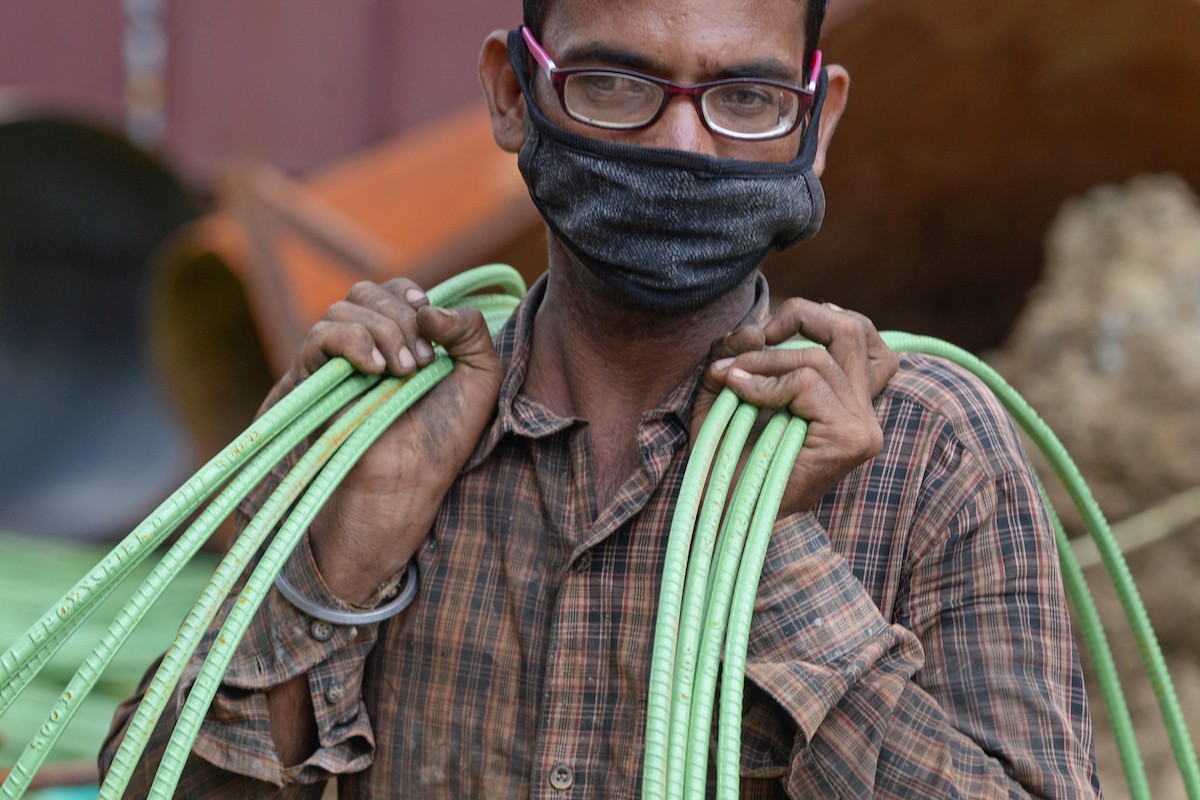Dhanoka Ram came to Delhi from the central state of Madhya Pradesh chasing his dream of owning a house in his village Antpura in Tikamgarh district.
Illiterate and unskilled, Ram took up a stonemason’s job at a construction site at Gurugram near Delhi. Things went well for him until he fractured his hand while breaking bricks.
The tribal bachelor, who earned a mere Rs 250 ($3) per day, had to pay for his medical costs. He ran up a lot of debt and to add to his misfortune, the contractor refused to hire him anymore.
Another tribal Suraj Prasad, a mason from a Bazidpur village in Nalanda district in the eastern state of Bihar, also migrated to Delhi searching for a better life a few years ago.
But the contractor paid him just Rs 500 ($6) per day as against the stipulated Rs700 ($9) given to locals.
Prasad said the contractors discriminate against outstation workers and the payment is never regular.
“I struggle to eke out a living. I pay Rs 3,000 rent for the one-room tenement in East Delhi’s Tahirpur. I have wife and three children to feed,” he said.
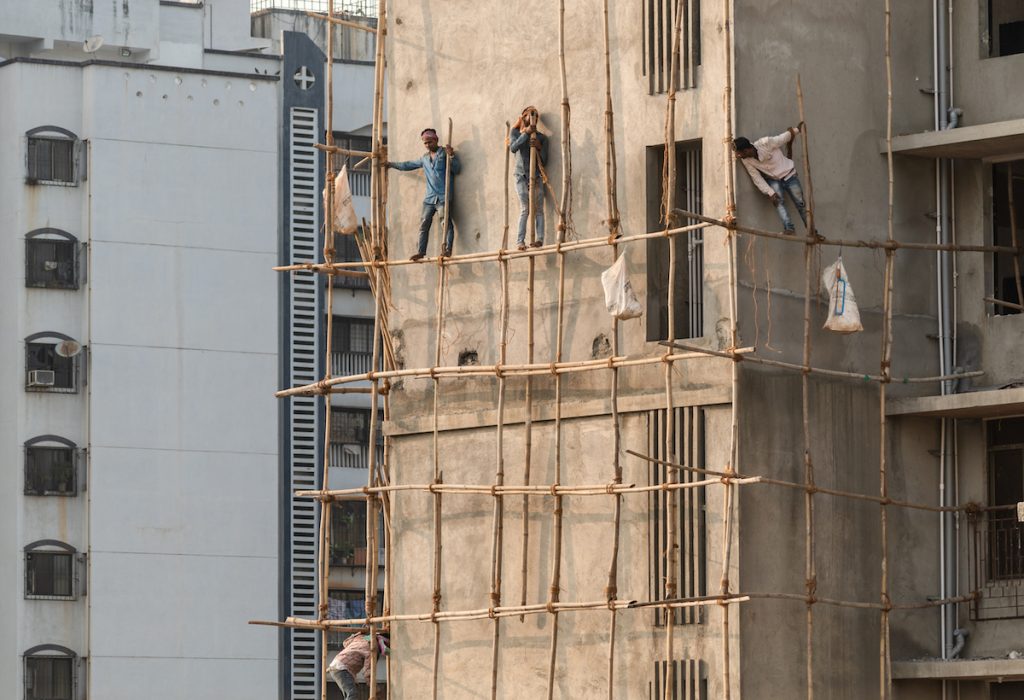
Not only do they suffer wage discrimination but also bonded labor, said Nirmal Goran, general secretary ‘Bandhua Mukti Morcha’ (bonded labor liberation front).
Take the case of Sanjay Ahirwar, a 35-year-old mason. He and his neighbor Jagdish Ahirwar from Khaderi village in Damoh district of central Madhya Pradesh state were lured by an agent who promised good salaries in the city.
The two scheduled caste men and their families were taken to Gagan Vihar in northern Uttar Pradesh’s Ghaziabad and kept as bonded labors for four months till they were rescued.
“We did not get any wages just two meals a day. To ensure we don’t escape, the contractor’s men used to hold captive my 1-year-old son and Jagdish’s two children aged 5 and 3 years when we went out for work on the construction site,” said Ahirwar.
A recent study by National Human Rights Commission on social security and health rights of migrant workers found that they lack basic facilities and are looked upon as outsiders or second-class citizens in the host states.
The study, which had 4,400 respondents — migrants and others associated with them — was carried out in Delhi, the western states of Maharashtra and Gujarat and northern Haryana.
These states house a large number of workers from West Bengal, Assam, Bihar, Odisha and Jharkhand in the east, Uttar Pradesh, and central Chhattisgarh states.
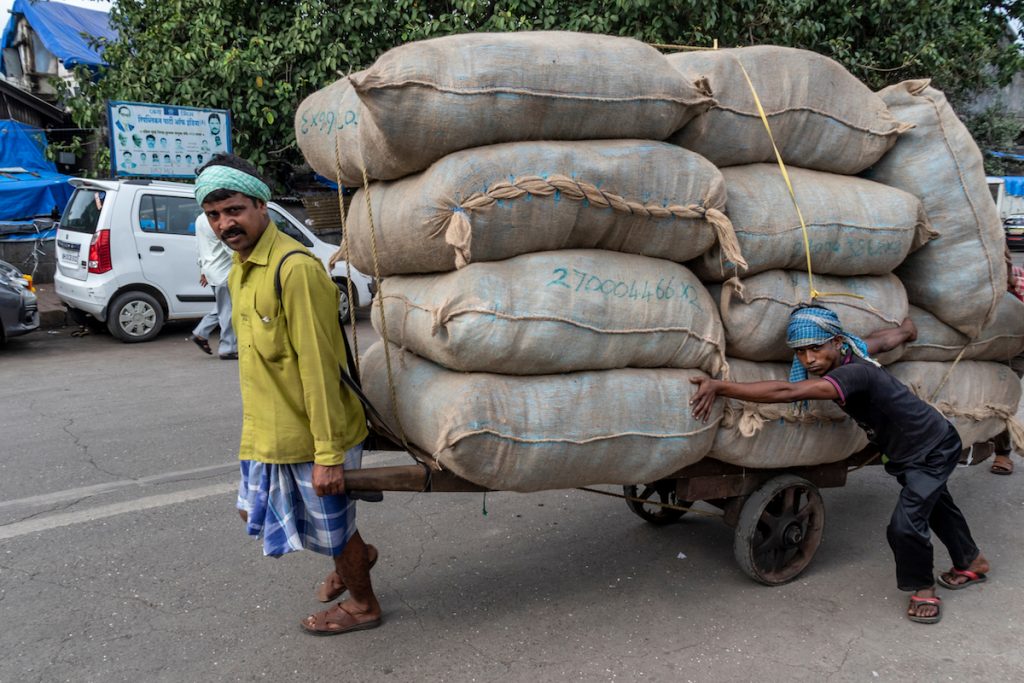
The survey found that migrants work in low-income and high-risk sectors such as construction and heavy industry but have poor access to health services, social protection, education, housing and sanitation, food and water, and other utilities.
The study noted that 84 percent of the respondents in Delhi did not have proper accommodation and that 68 percent of women did not have access to toilets as they live in slums. Migrants had little or no access to health care and women suffered nutritional deficiencies.
The study claims that 43 inter-state migrant workers die every month in Delhi, 35 in western state of Gujarat 41 in northern Haryana and 38 in Maharashtra due to mishaps at construction sites, stomach and heart ailments or by suicide.
Human rights, lockdown challenges
There is no institutional mechanism to address human rights violation against migrant workers, said Father Jaison Vadassery, executive secretary for the Conference of Catholic Bishops’ of India (CCBI) Commission for Migrants.
“There is an urgent need to help the tribal migrant laborers and the Church is working towards that by setting up resource centers for them at their work destination states,” Father Vadassery said.
The priest said the resource centers would help ensure migrant workers get proper and regular wage payment, have safety kits for high-risk jobs, assisting them with identity cards and informing them of welfare schemes etc.
“We are in the process of making a database from the land of the origin of the migrants and roping in dioceses and parishes to help accomplish the mammoth task,” the priest said.
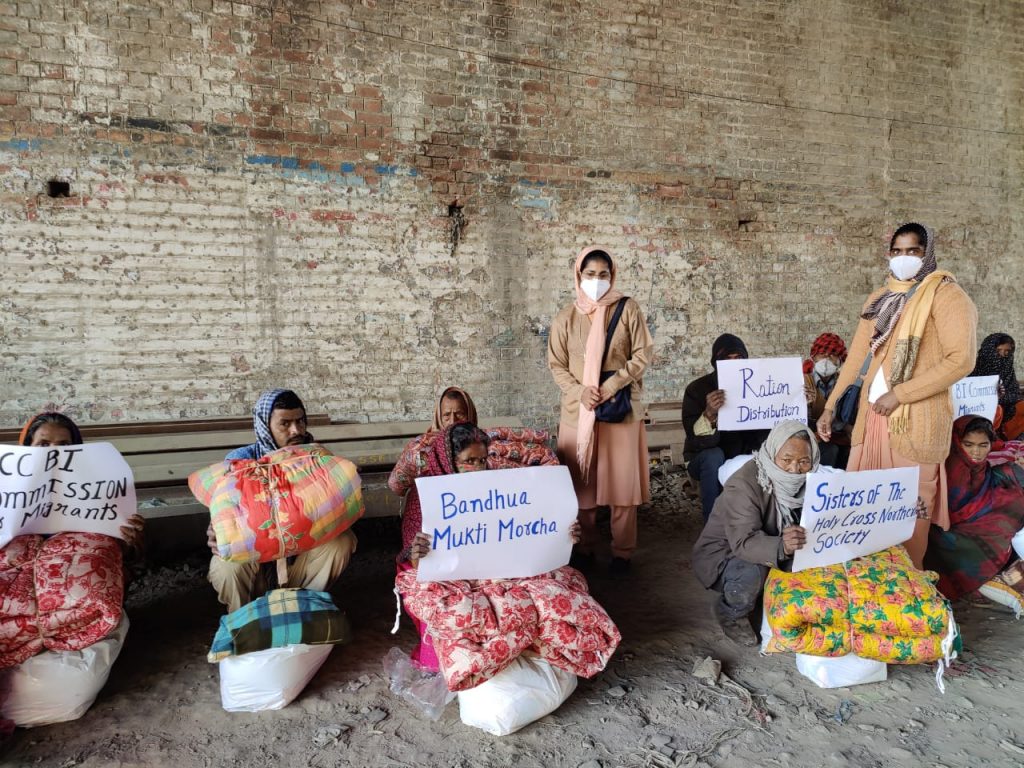
Father Vadassery said that the migrant workers have been heavily impacted bythe anti-COVID national lockdown put in place March 24 last year with many of daily-wage earners losing their income. Many of them, fearing starvation, set out on foot undertaking long arduous journeys to their home states. Hundreds died in accidents or of exhaustion on the way.
Since then many have returned to the cities for work but have faced challenges worsened by a COVID-19 surge that saw the country report 314,835 new daily cases on April 22.
“Most of the tribal migrants who returned did not get back their jobs as the contractors did not want to pay them lockdown wages. Other contractors cashed in on the opportunity hiring for less than half the regular wages,” Father Vadassery said.
“The frequent short lockdowns in some states like Delhi and Maharashtra are causing a loss of wages. They are also not getting accommodation as the landlords are wary, the migrants will not be able to pay rents,” he said.
“Now most of the workers who came [back] are making a retreat as the pandemic continues to rage and an uncertain situation prevails,” he said.
“The federal government and some industries are requesting them not to go, but nobody is willing to pay their rents or provide some support system.”
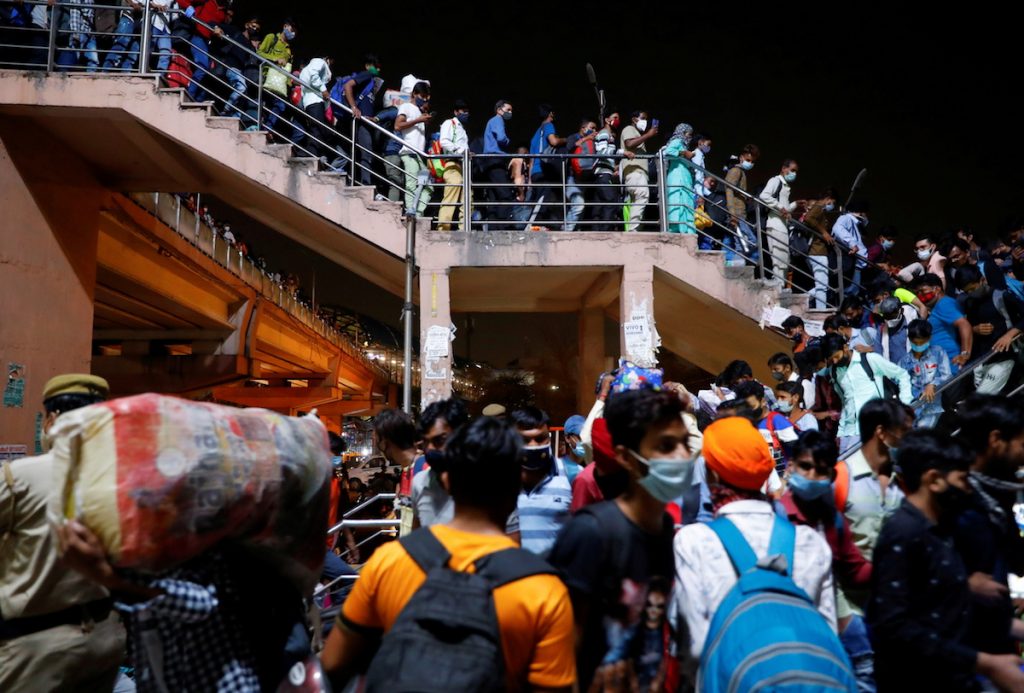
Church study
Father Vadassery said the CCBI Commission for Migrants and Workers India Federation recently conducted a study on 45 migrant workers at constructions sites in Delhi to study the problems faced by tribal migrant workers and the government policies for them.
The research titled ‘Tribal Migrants in Delhi City: A Pre-COVID and Post-COVID Analysis,’ found that the migrants find it difficult to adjust to the new lifestyle and environment. They are often subject to financial and sexual exploitation plus violence. There is wage discrimination, irregular payment, no compensation for accidents, no medical or social security benefits among other issues.
“There have been few real attempts to address the problems of tribal migrants in India. There are legislations to protect their interests but remain only on paper,” Father Vadassery said.
A majority of tribals have now turned migrants after being uprooted from their forest lands due to developmental activities following large-scale industrialization and climate change.
The construction industry employs around 60 million workers, mainly migrants working as carpenters, masons and plumbers. A significant number of tribal women migrate to work as domestic helps in the metro cities like Delhi, Mumbai and Bangalore.
Besides construction and domestic sectors, they also work at brick-kilns, mines, in restaurants and tea shacks etc.
The ‘Report of the Expert Committee on Tribal Health: Tribal Health in India — Bridging the Gap and a Roadmap for the Future’, states that over two-thirds of the 104 million tribal population is working in the unorganized sector.
It is estimated that, in the last decade, about 3.5 million tribal people have left agriculture-related activities to enter the informal labor market.
Father Vadassery said a multi-pronged strategy by the government is required to address the problems faced by tribal migrants who provide critical labor that sustains India’s economy.

